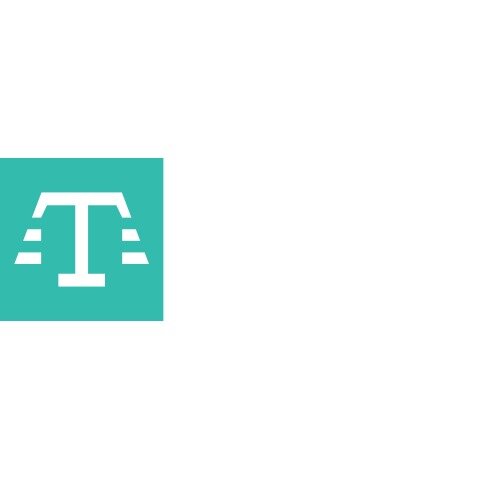Best Labor Law Lawyers in Iran
Share your needs with us, get contacted by law firms.
Free. Takes 2 min.
Or refine your search by selecting a city:
List of the best lawyers in Iran
About Labor Law in Iran
Labor Law in Iran governs the relationships between employers and employees, protecting the rights of workers and regulating labor conditions. It covers issues such as employment contracts, wages, working hours, and health and safety standards.
Why You May Need a Lawyer
You may need a lawyer for various reasons related to Labor Law in Iran, such as disputes over wages, unfair dismissal, workplace discrimination, or negotiating terms of employment contracts. A lawyer can provide legal advice, represent you in court, and help protect your rights as an employee.
Local Laws Overview
Key aspects of Labor Law in Iran include regulations on minimum wage, working hours, annual leave, employee benefits, occupational health and safety, and procedures for resolving labor disputes. Employers are required to comply with these laws to ensure fair treatment of employees.
Frequently Asked Questions
1. What is the minimum wage in Iran?
The minimum wage in Iran is set by the government and varies depending on the region and industry. As of 2021, the minimum wage is determined at 8,320,000 Iranian Rials per month.
2. Can employers terminate employees without cause in Iran?
Employers in Iran are required to have valid reasons for terminating employees, such as misconduct or poor performance. Wrongful termination can result in legal action against the employer.
3. Are there restrictions on working hours in Iran?
Yes, the standard working week in Iran is 44 hours, typically spread over six days. Overtime work is allowed, but employees must be compensated for the additional hours worked.
4. What are the rights of employees regarding annual leave?
Employees in Iran are entitled to paid annual leave, with the exact number of days depending on the length of service. Most employees receive between 20 to 30 days of annual leave per year.
5. How can employees report workplace discrimination in Iran?
Employees who experience workplace discrimination or harassment can report the incident to the Ministry of Cooperatives, Labor, and Social Welfare in Iran. Legal action can be taken against employers found guilty of discrimination.
6. Can employees form labor unions in Iran?
Yes, employees in Iran have the right to form labor unions and engage in collective bargaining. Labor unions play a role in negotiating labor contracts, representing workers' interests, and advocating for better working conditions.
7. What are the main health and safety regulations in Iran?
Employers in Iran are required to provide a safe working environment for employees, including measures to prevent accidents, occupational diseases, and exposure to hazardous substances. Inspections are conducted to ensure compliance with health and safety standards.
8. How are disputes between employees and employers resolved in Iran?
Disputes between employees and employers in Iran can be resolved through negotiation, mediation, or through the labor courts. Legal proceedings may be initiated to resolve complex disputes or violations of labor laws.
9. Are there specific regulations for hiring foreign workers in Iran?
Employers hiring foreign workers in Iran must comply with specific regulations related to work permits, visas, and residency requirements. Foreign workers are entitled to the same rights and protections as Iranian employees.
10. What are the penalties for employers who violate labor laws in Iran?
Employers who violate labor laws in Iran may face fines, legal action, or other penalties. It is important for employers to adhere to labor regulations to avoid legal consequences and protect their employees' rights.
Additional Resources
For more information on Labor Law in Iran, you can refer to the Ministry of Cooperatives, Labor, and Social Welfare or seek guidance from legal organizations such as the Iranian Bar Association. These resources can provide valuable assistance and support for individuals in need of legal advice.
Next Steps
If you require legal assistance in matters related to Labor Law in Iran, consider consulting with a qualified lawyer specializing in employment law. They can offer guidance, represent you in legal proceedings, and help ensure that your rights as an employee are protected.
Lawzana helps you find the best lawyers and law firms in Iran through a curated and pre-screened list of qualified legal professionals. Our platform offers rankings and detailed profiles of attorneys and law firms, allowing you to compare based on practice areas, including Labor Law, experience, and client feedback.
Each profile includes a description of the firm's areas of practice, client reviews, team members and partners, year of establishment, spoken languages, office locations, contact information, social media presence, and any published articles or resources. Most firms on our platform speak English and are experienced in both local and international legal matters.
Get a quote from top-rated law firms in Iran — quickly, securely, and without unnecessary hassle.
Disclaimer:
The information provided on this page is for general informational purposes only and does not constitute legal advice. While we strive to ensure the accuracy and relevance of the content, legal information may change over time, and interpretations of the law can vary. You should always consult with a qualified legal professional for advice specific to your situation.
We disclaim all liability for actions taken or not taken based on the content of this page. If you believe any information is incorrect or outdated, please contact us, and we will review and update it where appropriate.
Browse labor law law firms by city in Iran
Refine your search by selecting a city.

















